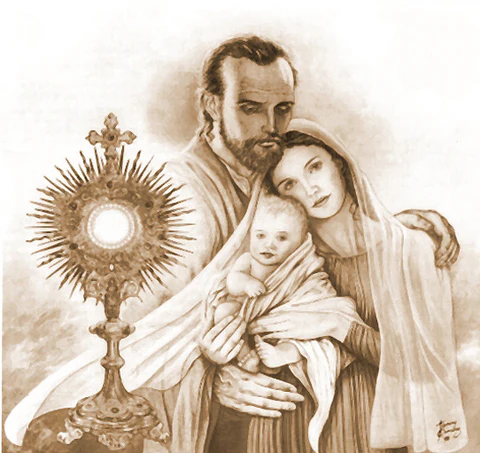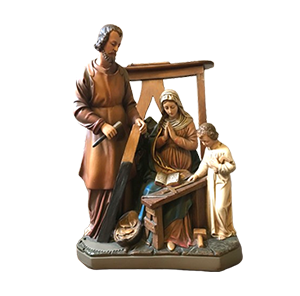CHRISTMAS IS EVERY DAY AND EVERYWHERE
07 Dec 2024 - 31 Dec 2024
“To see Jesus Christ as a small, lovable child in the manger of Bethlehem.” 1 These simple, prayerful, meditative words of Fr Wolff could be expressed theologically as “the Incarnate Word is the presentation and exposition of God.” 2 We are in the liturgical season of Advent, in which we await the birth of Christ, in whom God is presented and exposed to the world as a human being so that in the Incarnate Christ, we experience the mutual closeness between God and us.
Fr Wolff describes several glorious attributes of Christ in the form of contemplative reflections to help the spiritual growth of the Sisters of the Congregation he founded (JMJ). His reflections invite and challenge the readers to focus on their response to the God who became like us (humans) and who remains with us forever (Immanuel). Fr Wolff’s contemplation journeys from the small, lovable child in the manger to the permanent, real presence of God in the Holy Eucharist. In this way he challenges us to reorient our devotion to celebrate the birth of Christ not only on the 25 th of December, but every day and everywhere.

Following are the excerpts from two of the several attributes of Christ that Fr. Wolff describes:
Overweging-XXV: Jesus Christ is the True Immanuel, That is God With Us
Overweging-XL: Jesus Christ is the Word Made Flesh
Jesus Christ is Immanuel, God with us, in an extraordinary, unprecedented and wonderful way in the Blessed Sacrament. Indeed, His love for us and His desire to be with us compelled Him to establish such a great and sublime Sacrament.
He (Jesus Christ) loved me so much that He wanted me to be with Him in His palace and glory for all eternity, and therefore He gave His last drop of blood to redeem me, for He could not have shown His love better. So how can I love Him so lukewarmly? How can it be that I think so little of Him, talk so little to Him and talk so little about
Him?
Fr Wolff’s celebration of Christmas is every day of the year and every moment of the day. He says: My soul, what treasure do you not possess in this Blessed Sacrament? With what great longing should I not think of the day and hour when I shall have the supreme happiness of receiving my God and Saviour? How can I not, like St. Aloysius, always think of Jesus in the Blessed Sacrament? How can I not, like St. Stanislaus, always speak of Him? Yes, like St. Teresa’s heart, my heart should always be there.
During this Advent and Christmas seasons, can I pray, prepare and promise to grow in my awareness of the Lord who was once born in a manger, and who is present for me day and night in the Blessed Sacrament, so that each time I receive Him and adore Him, I can experience the joy of Christmas?
1 Mathias Wolff, Overwegingen en Grondregels, ter Beoefening der Volmaaktheid, Opgedragen aan het Gezelschap van Jesus, Maria, Joseph, (Sint-Michiels-Gestel: Ter Boekdrukkerij van het Bisdom van ’s Bosch, in het Instituut voor Doofstommen, 1868), no. XL.
2 Jeffrey A. Vogel, “The Unselfing Activity of the Holy Spirit in the Theology of Hans Urs von Balthasar,” Logos: A Journal of Catholic Thought and Culture 10, no. 4 (2007): (16-34) 18.
https://images.app.goo.gl/g9h6g74m3FAc8WnV9 (Image Source)

